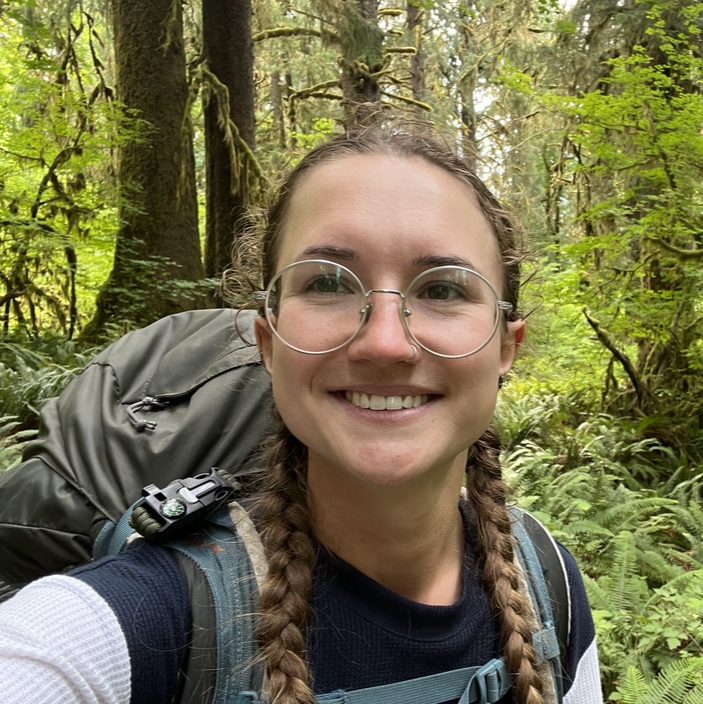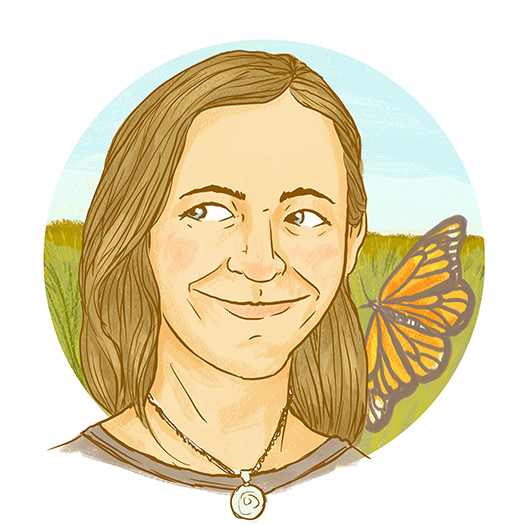Graduate Students
angelica bautista

In my research, I ask how habitat degradation affects seed availability and whether seed limitation predicts long-term plant community dynamics in the longleaf pine savanna of the southeastern United States. While it is clear that seeds play a key role in promoting and maintaining plant diversity and that climate and land use alter the number and types of species that emerge, the mechanisms underpinning these patterns have not been tested, and the role of fire regimes and a changing climate are unclear. Isolating the direct and indirect effects of fire, land use, and climate change on seed survival is a key next step. My research on fire effects and post-fire community recovery will help inform fuels and prescribed fire management in a changing climate and across landscapes with varying land use histories.
Email: abautista3 [at] wisc.edu
Katherine T. Charton

I am broadly interested how climate, disturbance, and their interaction impact plant communities. To investigate this, I am currently working in two long-term field experiments in southern Wisconsin tallgrass prairies, one focused on the interaction of disturbance timing and winter snow cover (started in 2016 by former graduate student Jon Henn) and the other on the interaction of woody plant management practices, environmental context, and summer drought (started in 2020 by myself). I collaborate with land managers at the UW-Arboretum, The Prairie Enthusiasts, Madison Audubon, and WI State Natural Areas Program to facilitate experimental treatments and seek in return to better understand how land management practices can help us maintain prairie biodiversity and ecosystem services into the future. You can find more details about me on my website.
Email: charton [at] wisc.edu
MICHELLE HOMANN

I am interested in plant community and climate change ecology in fire-maintained grasslands with a specific emphasis on restoration outcomes. As anthropogenic influences continue to impact the persistence and composition of restored grasslands, I hope to understand how prairie restoration can be made more effective in the long term. A changing climate has the potential to alter interspecific interactions through impacts on phenological timing, resource allocation, and establishment patterns in grassland plant species. Throughout my dissertation work, I am investigating the roles of fire timing, community assembly, and the overarching implications of a changing climate as drivers of plant community composition.
Email: mhomann [at] wisc.edu
Postdocs
Stephanie McFarlane

I am a plant community ecologist, interested in community assembly, plant-pollinator interactions, and restoration ecology. My dissertation research investigated the impact of restoration practices and management on restoration outcomes at over 30 restored prairies in south-central Wisconsin. For this research, I examined how different management regimes (i.e., whether sites were seeded, the seed mix composition, and the fire history) impact the vegetation, insect communities, and the monarch butterfly. I am also interested in the floral resources found in restored prairies and the related impacts on pollinators and pollination services.
Email: mcfarlane [at] wisc.edu
THOMAS SMITH
Thomas Smith recently joined our group. More information will be coming soon.
Email: tasmith28 [at] wisc.edu
Christopher Warneke
I am a plant ecologist interested in rare species and invasive species, and am driven by what makes populations at these ends of the abundance spectrum tick. I have worked primarily within restored habitat systems, as we can use experimental techniques to directly test ideas about species rarity and growing populations within these systems. In my position in the Damschen Lab, I am working primarily on data science and data management of the lab’s long-term data as well as how plant functional traits impact plant community patterns. You can find more details about me and find my CV at my website.
Email: warneke [at] wisc.edu
Research Associates and Technicians
BENJAMIN OVERLIE
Co-Lead technician and project manager for the Corridor Project at the Savannah River Site, SC.
Email: boverlie [at] wisc.edu
Eva SCHWARZ
Co-Lead technician and project manager for the Corridor Project at the Savannah River Site, SC.
Email: eschwarz4 [at] wisc.edu
MIKE FARRELL
Co-Lead technician and project manager for the Corridor Project at the Savannah River Site, SC.
Email: mfarrell6 [at] wisc.edu
Undergraduate Research Technicians
SAMANTHA Havlicek – LEAD RESEARCH TECHNICIAN

I am the lead research technician and conducting my senior thesis research in the lab. Currently, I’m interested in what contributes to plant reproductive success. In particular, I am investigating the impact of pollen nutritional quality on seed production and seed germination. I am interested in how this may impact ecological restoration practices.
Sam August – Undergraduate Researcher

I’m currently working with graduate student Michelle Homann on the tallgrass restoration and community assembly research project. The project aims to understand how winter climate change and restoration practices influence plant community composition. As a recipient of the Hilldale Fellowship, my research will take a deeper look into this relationship and try to understand why/how assembly and composition are changing. Winter climate change, modeled by a decrease in snow depth, and the timing of restoration practices, can cause variability in the number of freeze-thaw cycles. My research will analyze the effects of freeze-thaw cycles on seedling germination in both a field and laboratory setting.
Portraits courtesy of Liz Kozik.